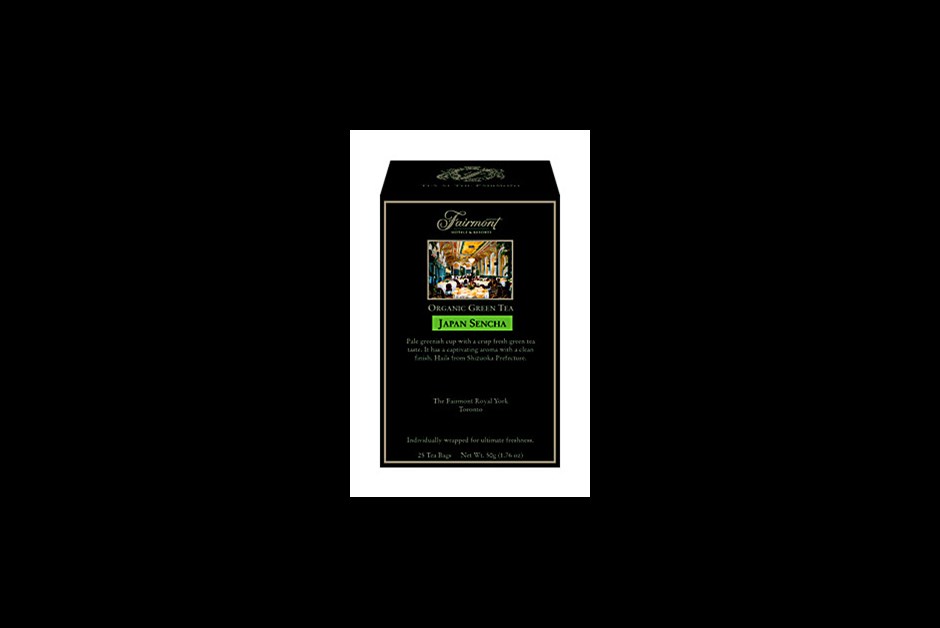Organic Japan Sencha - Fukujyu (Organic Japan Green Tea)
Cup Characteristics: Pale greenish cup with a crisp fresh green tea taste. It has a captivating aroma with a clean finish. Hails from Shizuoka preference.
Ingredients: Luxury Organic green tea
Tea Story:
Japan first saw tea along with another famous Chinese export, Buddhism. Buddhist monks brought tea, tea culture and ultimately tea plants to Japan late in the sixth century. It was not until the twelfth century that tea drinking was embraced by the Japanese citizenry. Today nearly all tea grown in Japan is green tea. It can be separated into three grades; Gyokuro, Sencha and Bancha.
This Fukujyu is in the sencha category and is one of the better export sencha teas. The green leaf, which goes into this tea, only comes from the first and second flush. Additionally, the plucking cycle for this tea during the 1st and 2nd flush is every 4 days producing a tea that is mainly comprised of young tender shoots. Once plucked the tea is steamed to denature it and stop any possibility of fermentation. After the steaming process the tea is rolled and pan-fired. (You can see the effects of the pan firing - the leaves take on a sheen). Sencha tea generally yields clear, pale-green cups that carry many of the same vegetative grassy notes common to all Japanese teas. Historically this taste was not popular among westerners, but in the past 10 years or so western tastes have begun to embrace the taste and the commensurate health benefits of Japan's green teas.
Traditional brewing of green tea at 180'F for 2 to 3 minutes yields about 15 - 25 milligrams of caffeine per 6 ounce cup compared to 30-45 mg for black tea (if black tea is brewed with boiling water - 212'F). While green tea is generally thought to contain less caffeine per cup, this is only true if it is brewed in the traditional green tea method because more caffeine is released the hotter the water.
How is organic tea grown?
Operating an organic tea garden or herbal farm is a multi-stepped process. In all cases, organic tea farms adhere to the following:
• Abstinence from using any synthetic fertilizer or pesticide
• Protection of the environmental integrity of lands surrounding the gardens
• Minimize pollution and optimize biological productivity
• Replenishment and maintenance of garden soil fertility.
• Promotion and maintenance of biodiversity in and around the tea gardens.
(This includes working to protect natural wildlife habitats.)
To make the perfect cup of Fairmont Tea: Bring freshly drawn cold water to a rolling boil. Use 1 teaspoon of Japan Sencha Fukujyu luxury loose tea or 1 tea bag of Japan Sencha Fukujyu luxury tea for each 10 ounce /300 ml serving required. Pour the boiling water into the teapot. Cover and let steep for 3-7 minutes according to taste (the longer the steeping time the stronger the flavor). Do not add milk or sugar.
To make the perfect cup of Fairmont Iced Tea: (to make 1 liter/quart): Place 6 teaspoons of Japan Sencha Fukujyu luxury loose tea or 6-8 tea bags of Japan Sencha Fukujyu luxury tea into a teapot or heat resistant pitcher.. Pour 1 1/4 cups of freshly boiled water over the tea. Steep for 5 minutes. Quarter fill a serving pitcher with cold water. Pour the tea into your serving pitcher straining the leaves. Add ice and top-up the pitcher with cold water. Garnish. It is not customary to sweeten this tea. [A rule of thumb when preparing fresh brewed iced tea is to double the strength of the hot brew since it will be poured over ice and diluted with cold water.]
